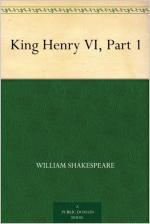|
This section contains 10,701 words (approx. 36 pages at 300 words per page) |

|
SOURCE: “Ironic Lapses: Plotting in Henry VI,” in Studies in the Literary Imagination, Vol. 5, No. 1, April, 1972, pp. 27-49.
In the essay below, Billings links the historical failures of the characters in Henry VI, Parts 1, 2, and 3 to Shakespeare's theme of a decline in heroic virtues and ideals, and examines the structural role of heroic irony in the plays.
Henry VI ironically adapts the conventions of heroic drama to the matter of the Lancastrian losses, first of France and secondly of England. So dominant are the irony and the heroic conventions that the Tudor propaganda of Hall's Union and Holinshed's Chronicles1 is obscured by the characters' sense of heroic duties and by the frequent frustration both of heroic intent and fulfilment of duty. Although the Tudor historians and Shakespeare show that civil dissensions weakened England and contributed to the losing of France, Hall, and Holinshed after him less insistently, assigns...
|
This section contains 10,701 words (approx. 36 pages at 300 words per page) |

|


